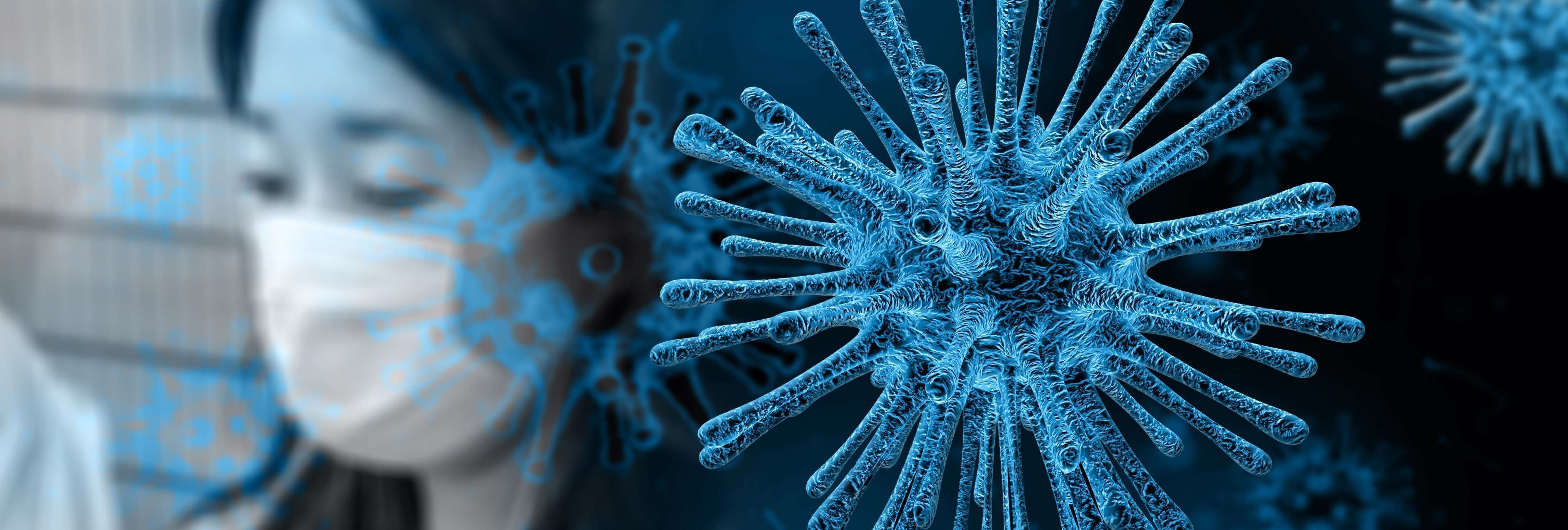Coronavirus Updates
Can a Person Get Infected by Coronavirus Twice?
6 min read
By Apollo 24/7, Published on - 28 July 2020, Updated on - 18 October 2022
Share this article
7
39 likes

How does our immune system react to Coronavirus?
- Innate (natural) immunity: This acts as the body’s first line of defence and natural barriers against disease-causing pathogens. The skin, hairs in our nose, mucous membrane, flushing action of tears, and the acid in our stomachs are part of our innate immune system. Though it reacts quickly to an infection, it fails to recognize all the pathogens.
- Adaptive (acquired) immunity: This forms the second line of defence of our body which develops over a lifetime of contact with pathogens and vaccines. Adaptive immunity is a slow process and can take several days before the T cells and B cells get activated. When the Coronavirus invades, these T cells and B cells start making antibodies (IgG and IgM) specific to the virus and then destroy them. Antibodies are proteins highly specific to a particular infection produced by the immune system.
Recommended Read: Can a Vaccine Provide Better Immunity than Natural Infection?
How soon are antibodies produced after an initial Coronavirus infection?
Why do some people test positive for COVID-19 again?
What does further research about antibodies and COVID-19 say?
- Singapore: The results of a study published in the Nature research journal showed that 23 patients who recovered from severe acute respiratory syndrome (SARS) 17 years ago, still carried antibodies (virus-specific memory T cells) and displayed cross-immunity to the Coronavirus.
- USA: The findings published in the Science Immunology showed that of the ten Coronavirus infected people, all were able to generate COVID-specific T cells and B cells. Besides this, two of the uninfected people already had developed T cells against COVID-19. This may have been possible because of cross-reactivity where these two people would have been infected with the common cold coronaviruses in the past.
- Rhesus macaque monkey study: A group of Chinese researchers reported that they had infected six rhesus monkeys and allowed them to recover. After 28 days, four of them were re-infected again with the Coronavirus but none became sick again. This study showed that the monkey’s immune system developed antibodies that shielded them from a second infection.
- Less mutation time of Coronavirus: Based on the current data, it can be concluded that the Coronavirus (SARS-CoV-2) mutates lesser than (25 times/year) the flu or influenza virus (50 times/year). This means that any innate (natural) immunity or vaccine developed later would offer more lasting protection. This gives us hope for the potential development of effective long-lasting vaccines against the Coronavirus. Besides this, even if a person gets infected with Coronavirus again, the second infection might be milder than the first one.
What does ‘herd immunity’ for COVID-19 mean?
Recommended Read: What is Coronavirus Herd Immunity and How It Can Be Attained?
Conclusion
Coronavirus Updates
Leave Comment
Recommended for you

Coronavirus Updates
What Are the Less Common and Unusual Symptoms of Coronavirus?
Loss of smell, taste, skin rashes, muscle pain, etc. are some of the rare symptoms of the novel Coronavirus.

Coronavirus Updates
Does Coronavirus Spread Through Food and Water?
Transmission of Coronavirus through food, food packages, and water as per research data appears to be less likely.

Coronavirus Updates
World Thyroid Day 2021: The link between thyroid disease and COVID-19
Some studies indicate that people with thyroid disease may be at increased risk of severe COVID-19 outcomes. However, more research is needed to establish this.
Subscribe
Sign up for our free Health Library Daily Newsletter
Get doctor-approved health tips, news, and more.
Visual Stories

Explained: The Highly Transmissible SARS-CoV-2 Variants
Tap to continue exploring
Recommended for you

Coronavirus Updates
What Are the Less Common and Unusual Symptoms of Coronavirus?
Loss of smell, taste, skin rashes, muscle pain, etc. are some of the rare symptoms of the novel Coronavirus.

Coronavirus Updates
Does Coronavirus Spread Through Food and Water?
Transmission of Coronavirus through food, food packages, and water as per research data appears to be less likely.

Coronavirus Updates
World Thyroid Day 2021: The link between thyroid disease and COVID-19
Some studies indicate that people with thyroid disease may be at increased risk of severe COVID-19 outcomes. However, more research is needed to establish this.